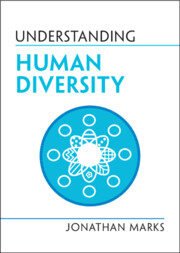Book contents
- Understanding Human Diversity
- Series page
- Understanding Human Diversity
- Copyright page
- Reviews
- Dedication
- Contents
- Foreword
- Acknowledgments
- 1 DNA Is Not Our Deep Inner Core
- 2 Our Fate Is Not in Our Genes
- 3 We Are Not 98% Chimpanzee
- 4 Human Variation Is Not Race
- 5 Political and Economic Inequality Is Not the Result of Genetics
- 6 Human Kinship Transcends Genetics
- 7 Men and Women Are Both from Earth
- 8 You Are Not 2% Interestingly Exotic
- 9 We Can’t Breed a Better Kind of Person
- 10 Conclusions
- Summary of Common Misunderstandings
- References and Further Reading
- Figure and Quotation Credits
- Index
10 - Conclusions
Published online by Cambridge University Press: aN Invalid Date NaN
- Understanding Human Diversity
- Series page
- Understanding Human Diversity
- Copyright page
- Reviews
- Dedication
- Contents
- Foreword
- Acknowledgments
- 1 DNA Is Not Our Deep Inner Core
- 2 Our Fate Is Not in Our Genes
- 3 We Are Not 98% Chimpanzee
- 4 Human Variation Is Not Race
- 5 Political and Economic Inequality Is Not the Result of Genetics
- 6 Human Kinship Transcends Genetics
- 7 Men and Women Are Both from Earth
- 8 You Are Not 2% Interestingly Exotic
- 9 We Can’t Breed a Better Kind of Person
- 10 Conclusions
- Summary of Common Misunderstandings
- References and Further Reading
- Figure and Quotation Credits
- Index
Summary
I admit there has been a lot of negativity in this book. But that’s how most scientists will tell you that science works, following the twentieth-century philosophy of Karl Popper. Science proceeds, in this view, through the falsification of hypotheses. That is the engine of science, and definitely a good thing. But scientists also generally don’t like to acknowledge that their own hypotheses have been falsified. Hence the perseverance of many of the folk views of human heredity and variation, in swaths of popular culture and in shrinking niches within the scholarly community itself.
My goal here has not been to describe human variation, but to help the reader understand it. Many decades ago, a book like this one would have been a mostly descriptive survey of the peoples of the world: stocky circumpolar peoples, tall and skinny Somalis, short Indonesians, darkly complexioned Sri Lankans, pale Swedes, and so forth.
- Type
- Chapter
- Information
- Understanding Human Diversity , pp. 137 - 140Publisher: Cambridge University PressPrint publication year: 2024



